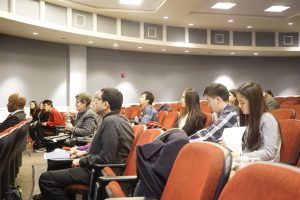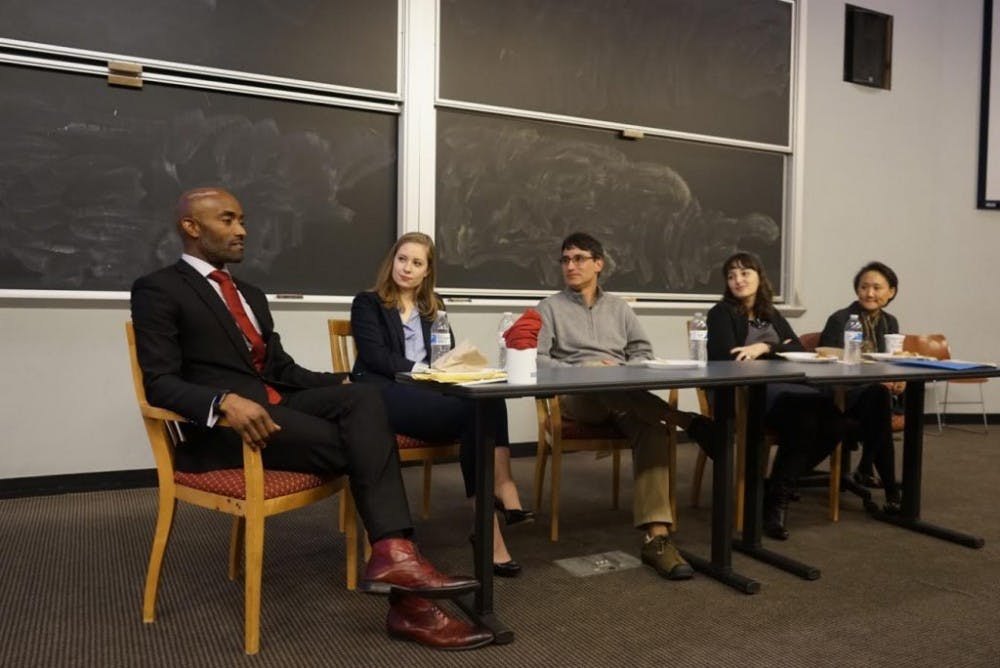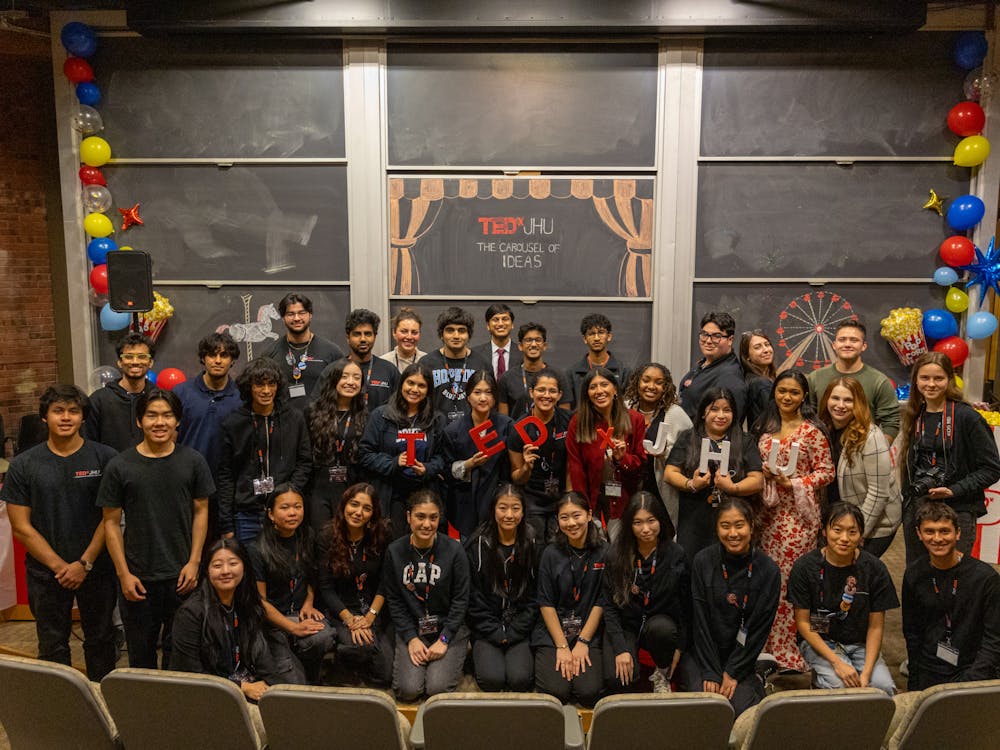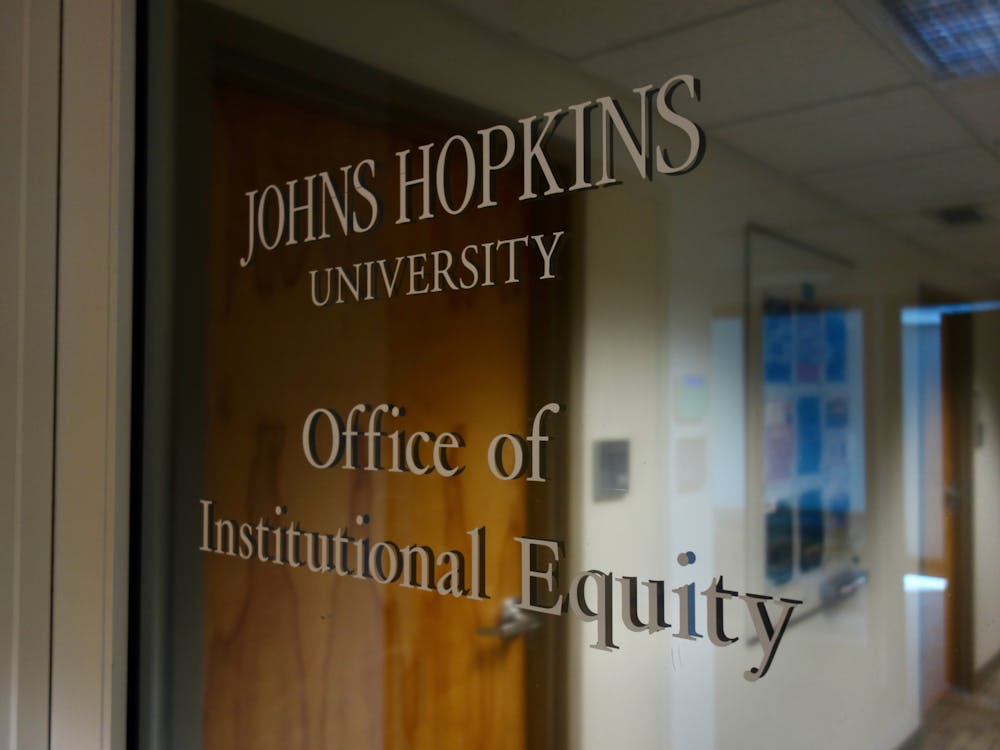The Hopkins chapter of Global China Connection hosted a regional conference focusing on the rise of China, the domestic and international challenges that the Chinese communist leadership faces and the changing geopolitics of the East Asian region. The six-hour event featured experts in international studies, geopolitics and international affairs as well as student research presentations. The conference took place on Saturday in Hodson Hall.
Global China Connection is an international non-profit organization that connects colleges and universities to top leaders and academics on China issues.
Junior Lisa Xiao, chapter president of Global China Connection, gave the audience a few questions to consider at the conference’s outset.
“What was China’s motivation behind the Asian Infrastructure Investment Bank (AIIB), and how will it affect the U.S. relationship with AIIB member states?” she asked. “What are challenges to China’s economic development? What will China look like in 2050? How can we best draw on our education and intellectual stamina to play an impactful role in the community of international economics and politics?”
Frank Jannuzi, president and CEO of the Maureen and Mike Mansfield Foundation, has also served on the U.S. Senate Committee on Foreign Relations. The Maureen and Mike Mansfield Foundation is an organization promoting U.S. relations with Asian countries.
Jannuzi provided his insight on China’s recent economic prosperity. He was stunned by the country’s rapid growth after traveling to China over the past thirty years, and believes that Americans were too.
“China without question is the amazing story of 21st century: 2.5 billion people lifted out of poverty,” he said. “At first, the U.S. response to the rise of China has been welcome and facilitating. So cute, little China joining the world! Wait, we can make money. We can capitalize off of the growth of china. Then we looked around and said, ‘What if China doesn’t like the rules? What if they want to disagree with me?’”
The formation of the AIIB in 2015 is one example of China exporting its development strategy to other nations by funding infrastructure projects in developing nations. The AIIB currently has 57 members, while China holds the largest voting share with 26 percent of the vote.
Many experts view China’s creation of the bank as a response to the Western-dominated nature of other international banks like the IMF, World Bank and Asian Development Bank. Natalie Lichtenstein, one of the architects of the AIIB, said that the U.S. and Japan not joining the AIIB was a boon to China.
“In retrospect, I think it was a benefit to the AIIB, not a financial benefit,” she said. “So having the U.S. in would be great. I suspect that the U.S. has a lot more experience in organizing international treaty organizations.”
Jannuzi said that as the rate of economic growth in China slows, the Chinese Communist Party will have to begin tackling the problems that the growth has created in order to maintain political control.

These include the environment, older demographics and income inequalities where the richest coastal provinces are ten times as wealthy as the poorer West. Ethnic unrest and government corruption are also tied to the growing income inequality.
Jannuzi believes that China is aware of all six problems and is working to correct them.
“They’re pushing One Belt One Road, pushing western development, investing in clean energy — they’re by far the largest investors in clean energy — and investing in health care and the social safety net,” he said.
Jannuzi also feels that China should loosen its Great Firewall, since the problems cannot be solved without freer spread of information.
“One of the biggest challenges China faces is control of information. You can’t keep some of the best minds in China without the free flow of information. You see this in the election of President Trump, the fake news, the slanted media coverage, the meddling by foreign countries... I don’t want to trivialize the threat to social stability through social media,” he said.
The experts discussed Trump’s recent phone call to Taiwan’s president Tsai Ing-Wen and the role of Taiwan, which China considers a breakaway province, in U.S.-China relations. David Brown, a Foreign Service Officer for the U.S. State Department in Asia, believes the call was a lack of understanding by Trump.
However, Jannuzi thinks it was a calculated move that signals Trump’s strong stance against China on trade.
“We’re uncertain about what President Trump will do with these issues,” Brown said. “He doesn’t have any foreign policy experience. He has appointed people, none of whom have experience with Asia. Last night, he agreed to make a phone call between the President of Taiwan and himself. Beijing sees this as a break of 40 years of tradition based on the agreement of 1978-79.”
Brown believes that although the China-Taiwan relations are fragile, neither side will do anything too provocative to the other. Both Tsai Ing-Wen and the general secretary of the Communist Party of China, Xi Jinping, like Donald Trump, are known as strong nationalists.
“I think there is reason to be optimistic that this cold peace will last for the foreseeable diplomats, which for former diplomats is two-to-three years. You can’t see much in the future beyond that,” Brown said. “I don’t think it is in either side’s interest to have the relationship deteriorate into a confrontation. Xi Jinping has great domestic problems, and he is consolidating his position for the 19th National Congress coming up. Tsai is not saying that she rejects the one China.”
Trump has also promised to reject the Trans-Pacific Partnership (TPP) on day one of office. The speakers said that this would likely embolden China in the South China Sea, where it is building military capacity.
Hopkins graduate student Hannah Gu said that the talk was heavily focused on China’s foreign relations. She hoped to hear more about Chinese industry.
“I thought it would talk more about Chinese industrial development. I think China is facing a problem now because many companies are moving factories to Southeast Asia, and China needs to think about how to switch its industry,” she said.
Prospective SAIS student Mayumy Rivera said that the talk helped her decide on whether to go into East Asian studies.
“I came with Mr. Brown. I did not know anything about this before, but he’s been really supportive of me into Asian studies, which I’m applying for next year. I think this was very informative,” she said. “I’ve not been aware of what’s going on in Asia, and this gets me back on track. These three speakers were very interesting, and they will get me back into what I want to do.”





